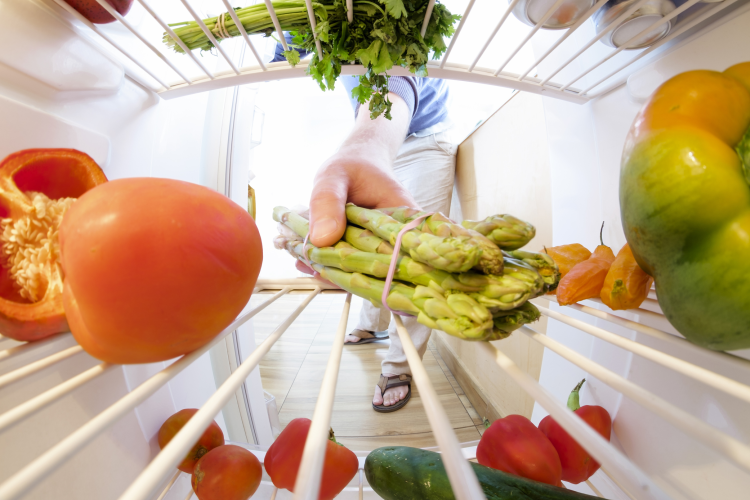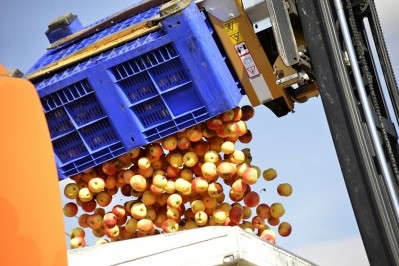Food waste spotlighted as Spain prepares for 2023 waste reduction law

In 2020, Spanish households threw away more than 1,300 million kilos of food, an average of 31 kilos per person. According to figures from the Ministry of Agriculture, Fisheries and Food, this represents a financial loss of €250 per person.
The government wants to tackle what Agriculture Minister Luis Planas has described as an "inefficiency" of the food chain, which has economic, social and environmental consequences.
New requirements for business to cut waste
For businesses, the law contains a number of concrete steps. Food operators and distributors will be required to formulate food waste reduction plans. Following a hierarchy of use priorities, supermarkets will have to drop the price of food as it nears its sell-by date, donate unsold products to redistribution charities, turn unused produce into jams and juices, or – as a last resort – animal feed. It also calls on retailers to carry ‘ugly or imperfect’ lines of fruit and vegetables and promote seasonal, local or organic produce.
The requirements will be backed up by a sanctions regime. Not having a food waste plan will be a ‘serious offense’ carrying a penalty of up to €60,000.
Planas said the plan responds to a ‘social need’. On the one hand, ‘it regulates the preferential use of food for human consumption’, favouring donation, and on the other it tries to ‘make society aware of the need to reduce food waste’.
But does it go far enough?
Enraíza Derechos, an NGO specialising in food waste, thinks not.
It acknowledged the reform contains a number of ‘important points’, with the aim to reduce waste at all points in the food chain. However, the organisation believes not enough emphasis is placed on food waste prevention. By focusing on managing surplus, the regulation fails to ensure ‘no food produced ends up in the garbage’.
“We had been waiting for a law against food waste for years, but after a preparatory process of almost a year, we believe that we are losing a great opportunity to have a pioneering law that tackles the problem from the root,” it said in a statement.
Food waste at home
While Planas insisted food waste is an ethical issue that ‘calls everyone's conscience’, the Spanish government’s plans also do little to combat food waste in the home. Data from the European Commission suggests that, across the bloc, waste at a consumption level is by far the biggest contributor to total food waste. Consumers are responsible for 53% of the food that is thrown out, compared to 19% in food processing, 12% in catering, 11% in primary production and just 5% in retail.
While most of the food wasted comes from our fridges, cutting at-home food waste levels is a thorny problem.
A new observational study from the Silestone Institute has found around 30% of Spanish households ‘need to improve their practices to reduce food waste’ at home.
While Silestone researchers note ‘is not easy to quantify’, they have been able to estimate the risk of household wastage by analysing purchase, handling and consumption habits gathered through a household survey.
Nearly 30% of the people surveyed need to improve their habits and practices to reduce wastage in their households, according to survey designer Maite Pelayo, a microbiologist specializing in food safety and technical spokesperson for the Silestone Institute. People in this group were twelve times more likely to throw leftover food in the trash (14.5%) than those in the low wastage group (1.2%).
A recent workshop organised by the Silestone Institute flagged that fresh produce is the category most at-risk of waste. Dr. Alejandro Bonetti, Deputy Director of the Mediterranean Diet and Healthy Life programme at the Royal Academy of Medicine and Surgery of Eastern Andalusia, Ceuta and Melilla (RAMAO), noted: "About 50% of the products that are wasted correspond to the Mediterranean Diet. Specifically, 33% fruit and 14% vegetables. With this waste we are contributing to wasting and throwing away essential elements of the Mediterranean Diet."
The good news is that 70% of respondents in the Silestone study fell into this low wastage grouping. So what can be learned from their habits to cut household food waste? Silestone researchers were able to assess what strategies proved successful for food waste reduction at home and make recommendations for behavioural change.
Good shopping habits identified include menu planning and list making as well as an awareness of purchase dates and avoiding breaking the cold chain. They recommend ordering food by date when storing it, checking food in the refrigerator and understanding the difference between best-before and use-by dates. The research found 20% of people didn’t understand this distinction. Managing leftovers and leaning on recipes that ‘make the most of food’ were also suggested.
“Some factors that can influence food wastage in the home are difficult to change,” for example place of purchase or frequency of shopping trips. “However, it is possible to influence the reduction of wastage by devoting efforts to training, awareness raising and information.”
Raising awareness of this global problem at a consumer level will be critical if food waste at home is to be brought down in Spain, the researchers believe. This should be coupled with training on planning, good practice for transport and storage, and information on food management, they suggested.
"Food waste is an ethical, socioeconomic and environmental problem that causes the loss of the value of food," stressed the scientific spokesperson for the Silestone Institute, Mayte Pelayo. The focus moving forward must be on how to reduce it to a minimum, he insisted.


















